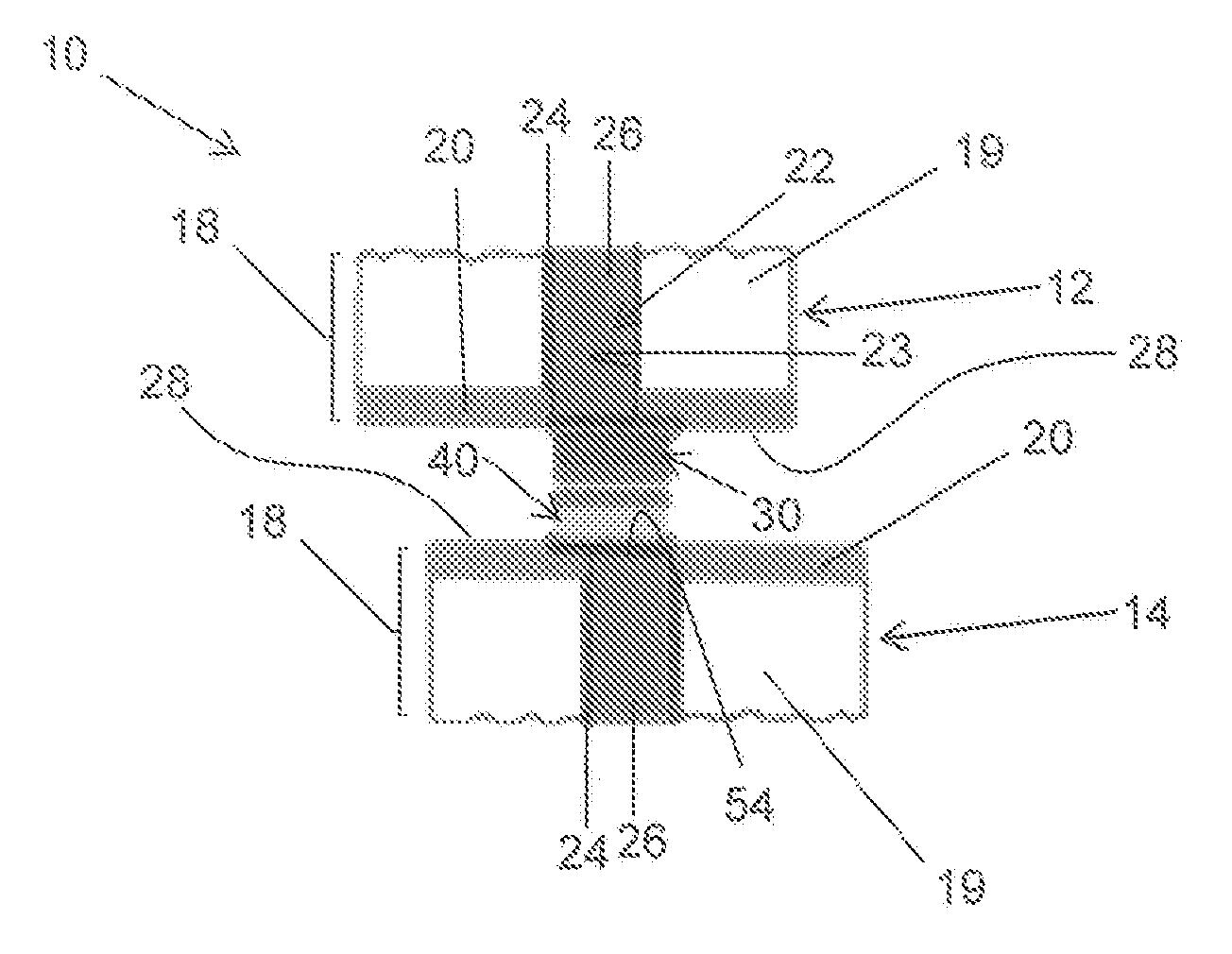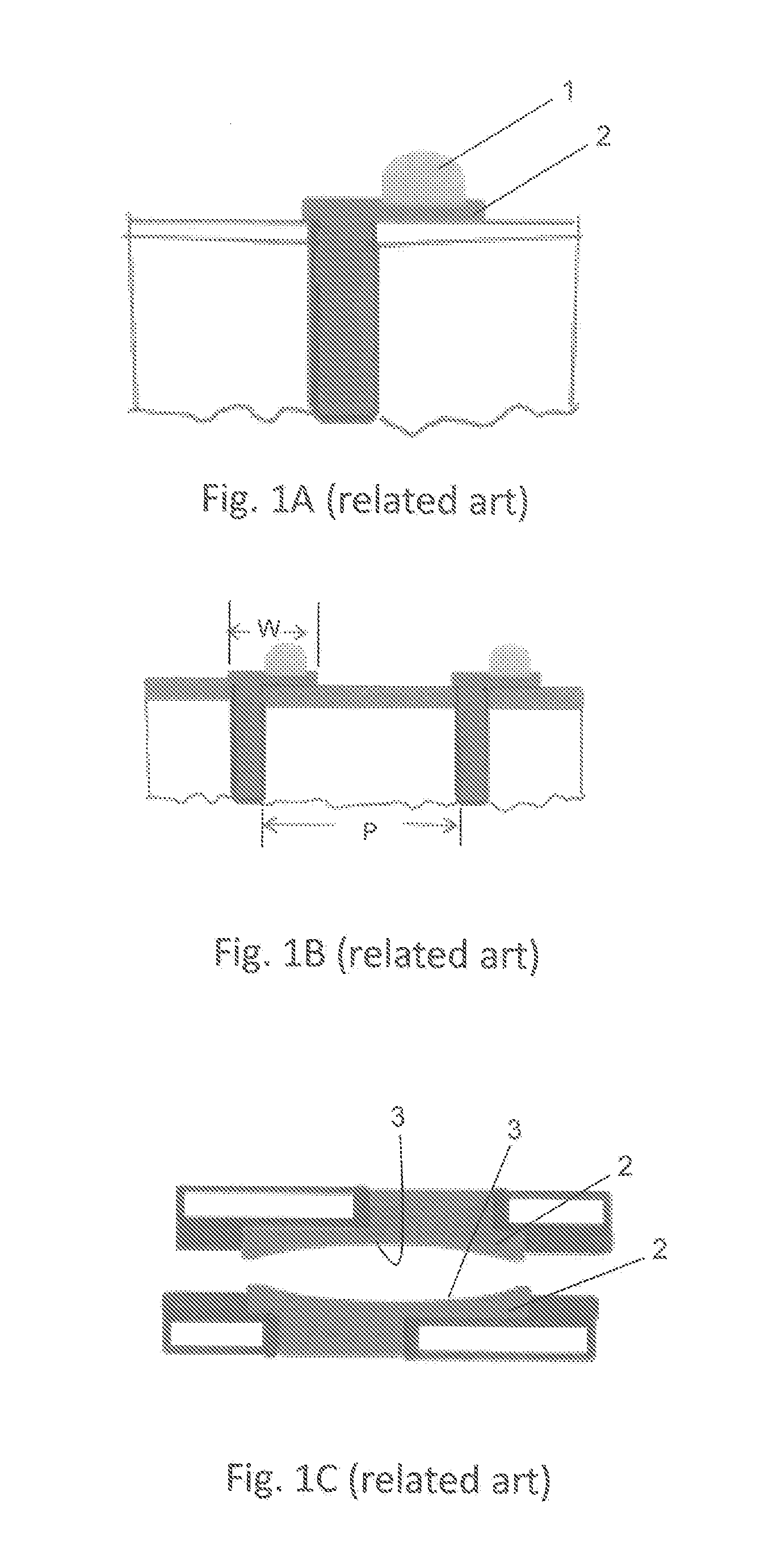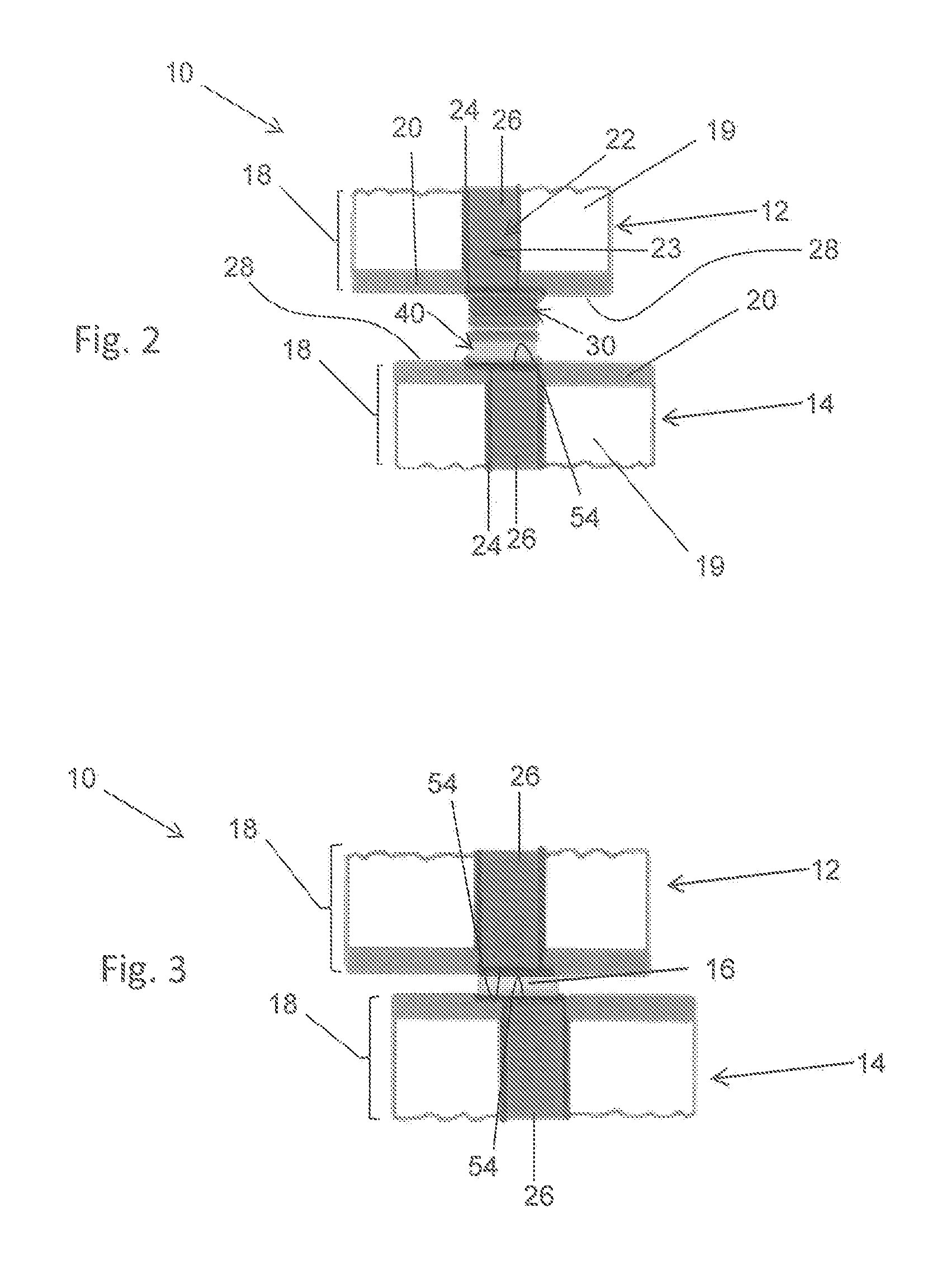Advanced device assembly structures and methods
a technology of advanced devices and assembly structures, applied in the direction of semiconductor/solid-state device details, soldering apparatus, manufacturing tools, etc., can solve the problems of lateral deformation, increased widening, and lack of joint mass deficiencies
- Summary
- Abstract
- Description
- Claims
- Application Information
AI Technical Summary
Benefits of technology
Problems solved by technology
Method used
Image
Examples
Embodiment Construction
[0042]Turning to the Figures, wherein similar numeric references are used in connection with similar features, FIG. 3 shows a microelectronic assembly 10 according to an aspect of the present disclosure. Assembly 10 includes first and second elements joined together by an alloy mass 16. In FIG. 3, the first and second elements are shown as portions of microelectronic devices, which can be in the form of packaged microelectronic elements, interposers, substrates, or the like. For example, first and second elements 12 and 14 are shown in FIG. 3 as including a support material layer 18 that can, for example be of a semiconductor or a dielectric material layer such as found in an interposer structure, in a portion of a packaged microelectronic element, or in a portion of a semiconductor die. In an example, support material layer 18 can of one of a semiconductor material, or of a dielectric material, or of a combination of semiconductor and dielectric materials, such as in the example sh...
PUM
| Property | Measurement | Unit |
|---|---|---|
| melting point | aaaaa | aaaaa |
| widths | aaaaa | aaaaa |
| melting point | aaaaa | aaaaa |
Abstract
Description
Claims
Application Information
 Login to View More
Login to View More - R&D
- Intellectual Property
- Life Sciences
- Materials
- Tech Scout
- Unparalleled Data Quality
- Higher Quality Content
- 60% Fewer Hallucinations
Browse by: Latest US Patents, China's latest patents, Technical Efficacy Thesaurus, Application Domain, Technology Topic, Popular Technical Reports.
© 2025 PatSnap. All rights reserved.Legal|Privacy policy|Modern Slavery Act Transparency Statement|Sitemap|About US| Contact US: help@patsnap.com



